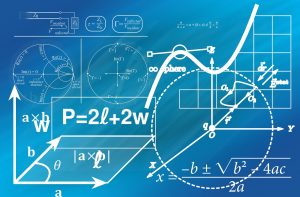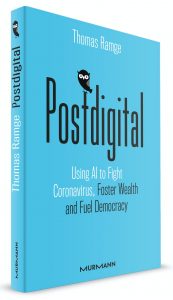
When I first saw the Computer Algebra System Mathematica in the nineties I was instantly fascinated by it: you could not just calculate things with it but solve equations, simplify, differentiate and integrate expressions and even solve simple differential equations… not just numerically but symbolically! It helped me a lot during my studies at the university back then. Normally you cannot do this kind of stuff with R but fear not, there is, of course, a package for that!
Continue reading “Doing Maths Symbolically: R as a Computer Algebra System (CAS)”
Kalman Filter as a Form of Bayesian Updating

The Kalman filter is a very powerful algorithm to optimally include uncertain information from a dynamically changing system to come up with the best educated guess about the current state of the system. Applications include (car) navigation and stock forecasting. If you want to understand how a Kalman filter works and build a toy example in R, read on!
Continue reading “Kalman Filter as a Form of Bayesian Updating”
Time Series Analysis: Forecasting Sales Data with Autoregressive (AR) Models

Forecasting the future has always been one of man’s biggest desires and many approaches have been tried over the centuries. In this post we will look at a simple statistical method for time series analysis, called AR for Autoregressive Model. We will use this method to predict future sales data and will rebuild it to get a deeper understanding of how this method works, so read on!
Continue reading “Time Series Analysis: Forecasting Sales Data with Autoregressive (AR) Models”
COVID-19: False Positive Alarm
 In this post, we are going to replicate an analysis from the current issue of Scientific American about a common mathematical pitfall of Coronavirus antibody tests with R.
In this post, we are going to replicate an analysis from the current issue of Scientific American about a common mathematical pitfall of Coronavirus antibody tests with R.
Many people think that when they get a positive result of such a test they are immune to the virus with high probability. If you want to find out why nothing could be further from the truth, read on!
Continue reading “COVID-19: False Positive Alarm”
Thomas Ramge: Postdigital (Book Excerpt)
 We are honoured to present to you an exclusive excerpt from digital thought leader and bestselling author Thomas Ramge’s new book Postdigital. Using AI to Fight Coronavirus, Foster Wealth and Fuel Democracy:
We are honoured to present to you an exclusive excerpt from digital thought leader and bestselling author Thomas Ramge’s new book Postdigital. Using AI to Fight Coronavirus, Foster Wealth and Fuel Democracy:
Continue reading “Thomas Ramge: Postdigital (Book Excerpt)”
Learning Data Science: A/B Testing in Under One Minute

Google does it! Facebook does it! Amazon does it for sure!
Especially in the areas of web design and online advertising, everybody is talking about A/B testing. If you quickly want to understand what it is and how you can do it with R, read on!
Continue reading “Learning Data Science: A/B Testing in Under One Minute”
Learning R: Build a Password Generator

It is not easy to create secure passwords. The best way is to let a computer do it by randomly combining lower- and upper-case letters, digits and other printable characters.
If you want to learn how to write a small function to achieve that read on!
Continue reading “Learning R: Build a Password Generator”
Learning Statistics: Randomness is a Strange Beast

Our intuition concerning randomness is, strangely enough, quite limited. While we expect it to behave in certain ways (which it doesn’t) it shows some regularities that have unexpected consequences. In a series of seemingly random posts, I will highlight some of those regularities as well as consequences. If you want to learn something about randomness’ strange behaviour and gain some intuition read on!
Continue reading “Learning Statistics: Randomness is a Strange Beast”
Lying with Statistics: One Beer a Day will Kill you!

About two years ago the renowned medical journal “The Lancet” came out with the rather sensational conclusion that there is no safe level of alcohol consumption, so every little hurts! For example, drinking a bottle of beer per day (half a litre) would increase your risk of developing a serious health problem within one year by a whopping 7%! When I read that I had to calm my nerves by having a drink!
Ok, kidding aside: in this post, you will learn how to lie with statistics by deviously mixing up relative and absolute changes in risks, so read on!
Continue reading “Lying with Statistics: One Beer a Day will Kill you!”
Will AI become conscious any time soon?

We all know the classical Sci-Fi trope of intelligent machines becoming conscious and all the potential ramifications that could follow from there (free will, fighting their human creators, ethical dilemmas, and so forth). Now, is this a realistic scenario? As a researcher in the area of AI (see e.g. So, what is AI really?), with a penchant for philosophy, I share my thoughts here with you, so read on!
Continue reading “Will AI become conscious any time soon?”
